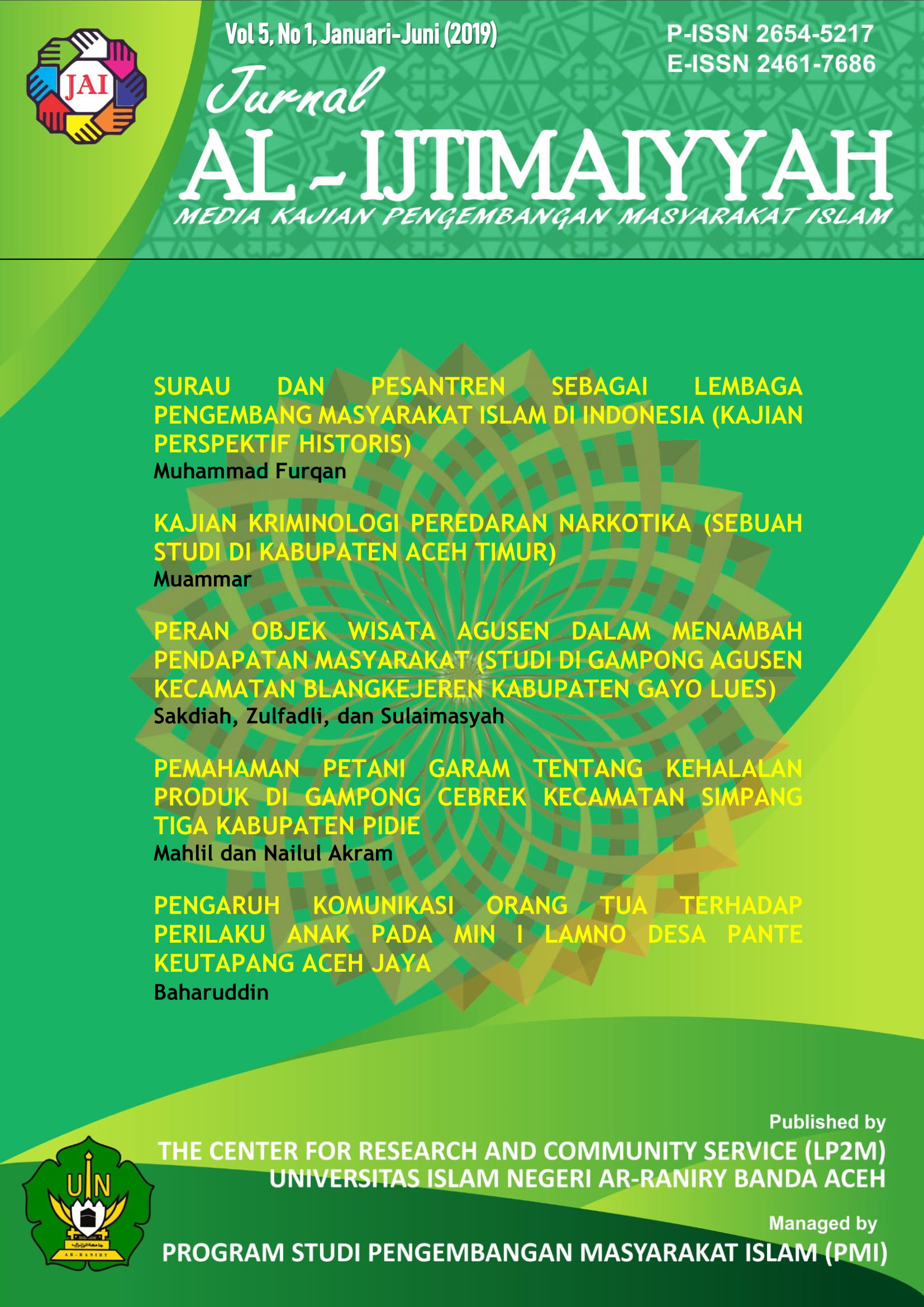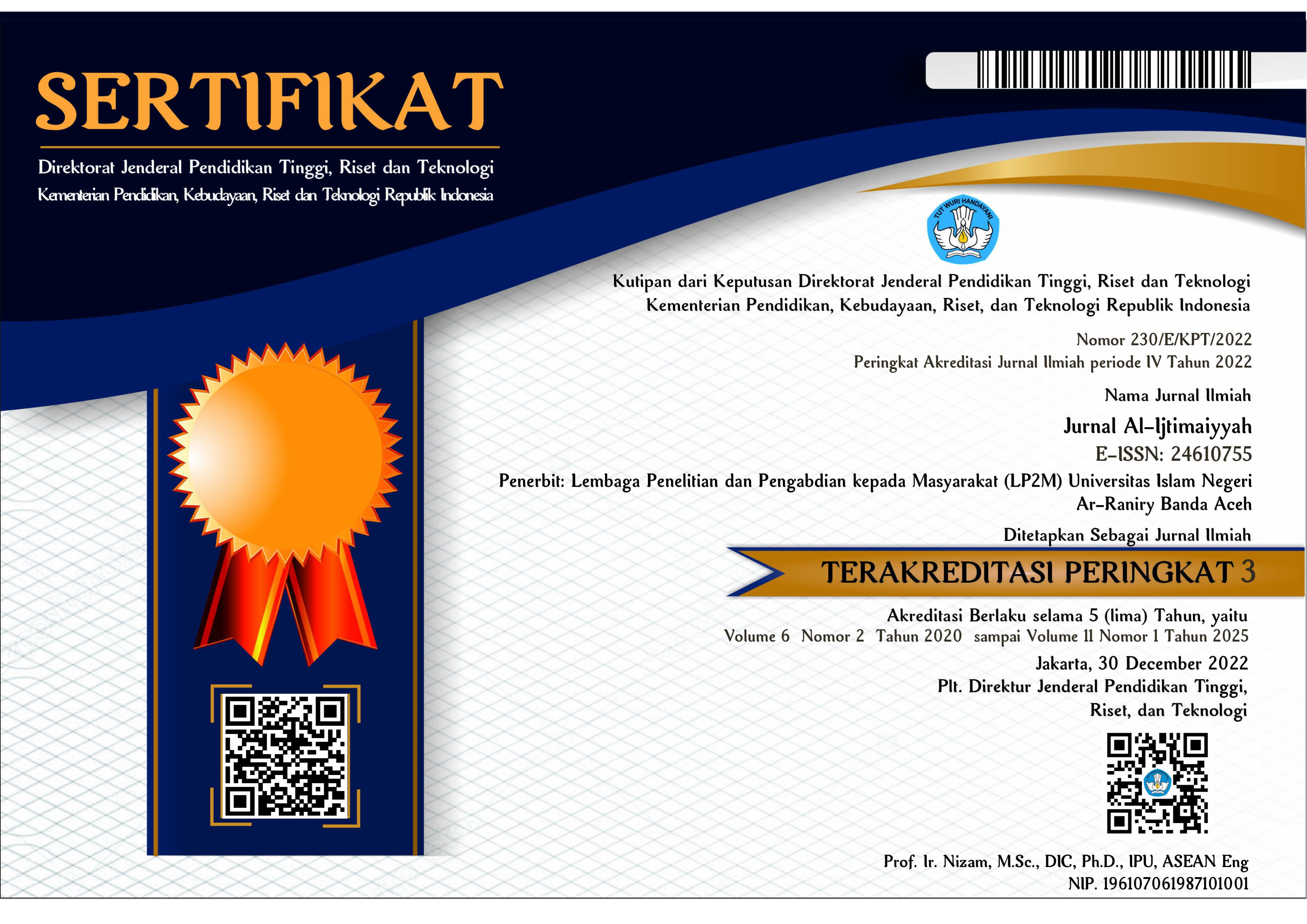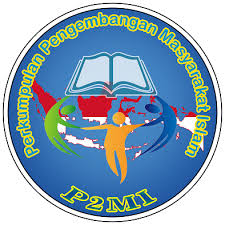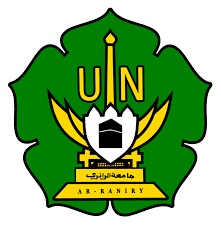PEMAHAMAN PETANI GARAM TENTANG KEHALALAN PRODUK DI GAMPONG CEBREK KECAMATAN SIMPANG TIGA KABUPATEN PIDIE
DOI:
https://doi.org/10.22373/al-ijtimaiyyah.v5i1.5136Abstract
This study raised the issue of understanding salt farmers about the halal products starting from pre-production, production processes, and post-production in Gampong Cebrek, Kecamatan Simpang Tiga, Pidie District. The purpose of this research is to find out the understanding of salt farmers about the halal nature of the product and what are the constraints of salt farmers related to efforts to manage product halal guarantee. This study uses a qualitative method with a descriptive approach, and uses a sample selection technique with the provisions of the characteristics and characteristics of objects in a purposive sampling study, the data collection technique is done in three ways, namely observation, interviews, and documentation. The informants were four salt farmers and keuchik Gampong (village head) Cebrek. The results showed that the understanding of salt farmers in terms of pre-production was good, the production process was quite good and post-production was good. The obstacle factor of salt farmers related to product halal guarantee is that the income and expenditure of salt farmers are not comparable or still low so it is not enough to carry out the halal label management process, and is also constrained in the fencing of salt fields. Here there needs to be attention and role from the government, LPPOM (Institute of Studies, Food, Medicine and Cosmetics)-MPU (Ulama Consultative Assembly) Aceh to guide salt farmers to immediately fence off their salt fields so that the salt production process is better so that it meets the standards halal products.
Keywords: Understanding of salt farmers, halal products.
Downloads
References
Burhan Bungin, Metode Penelitian Kualitatif: Aktualisasi Metodologis ke Arah Ragam Varian Kontemporer, Jakarta: Raja Grfindo Persada, 2006.
Girindra Aisjah. Dari Sertifikasi Menuju Lebelisasi Halal, Jakarta: Pustaka Jurnal Halal, 2008.
Hasan, Ali. Manajemen Bisnis Syari’ah, Yogyakarta: Pustaka Pelajar, 2009.
Kementrian Agama RI, Al-Qur’an dan Terjemahan, Bandung: Insan kamil, 2007.
Kumar, Aswadi. (Kepala Litbang dan Redaktur Opini Harian Serambi Indonesia) sumber youtube kompastv Aceh/Serambi On Tv. Tanggal 6 November 2018.
Masthu, Makanan Indonesia dalam Pandangan Islam, Jakarta: Kantor Menteri Negara Urusan Pangan Republik Indonesia, 1995.
Majelis Ulama Indonesia, Himpunan Fatwa Majelis Ulama Indonesia, Jakarta: Majelis Ulama Indonesia, 2010.
M. Nadratunzzaman Hosen, Halal Sebagai Tema Da’wah, Jakarta: Pustaka Jurnal Halal, 2008.
Moleong, Lexy J., Metodelogi Penelitian Kualitatif, Bandung: Remaja Rosdakarya, 2002.
Nashshar, F.M. Antara Halal Dan Haram, Bandung: Angkasa 2013.
Peraturan Pemerintah Nomor 69 Tahun 1999 Tentang Produk Halal.
Munir Salham, Industri Garam, Darussalam-Banda Aceh: Pusat Latihan Ilmu-Ilmu Sosial, 1984.
Sopan, Sertifikatsi Halal Majelis Ulama Indonesia Studi Atas Fatwa Halal MUI Terhadap Produk Makanan, Obat Obatan Dan Kosmetik, Jakarta: GP Perss, 2013.
Downloads
Published
Issue
Section
License
Copyright (c) 2019 Mahlil, Nailul Akram

This work is licensed under a Creative Commons Attribution-ShareAlike 4.0 International License.
Authors who publish in Jurnal Al-Ijtimaiyyah agree to the following terms:
- Authors retain copyright and grant the journal right of first publication with the work simultaneously licensed Attribution-ShareAlike 4.0 International (CC BY-SA 4.0) that allows others to share the work with an acknowledgment of the work's authorship and initial publication in this journal.
- Authors are able to enter into separate, additional contractual arrangements for the non-exclusive distribution of the journal's published version of the work (e.g., post it to an institutional repository or publish it in a book), with an acknowledgment of its initial publication in this journal.
- Authors are permitted and encouraged to post their work online (e.g., in institutional repositories or on their website) prior to and during the submission process, as it can lead to productive exchanges, as well as earlier and greater citation of published work. (See The Effect of Open Acces)










